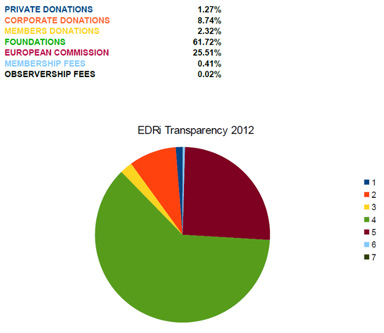This article is more than 1 year old
Whistling Google: PLEASE! Brussels can only hurt Europe, not us
And Europe's pro-Google. Why should we worry?
Europe’s policy problem: it usually makes things worse
The problem is really threefold.
Firstly, Europe has barely begun to grasp the nature of the political and economic power of Google. Secondly, it is intellectually compromised: the Commission and Parliament unwittingly support much of the Google’s own agenda. And thirdly, Brussels is institutionally geared up to do more damage to Europe than it is to Google. The third part contributes to the second in some interesting ways.
While lamenting the damage done by Google to Europe’s cultural and news sectors, to its home grown industries, and to its institutions, European institutions are quite active on the battlefield themselves. Europe helps fund much of the "civil society" lobbying on behalf of er, Google. The legitimacy of these groups is even more questionable than that of the Parliament. For example, barely two per cent of the funding for Europe’s Google-friendly digital lobby group EDRi comes from individual members. Fully a quarter of its income comes from the EU itself.

Only two per cent of the funding for "grassroots" activist group EDRI comes from members: 87 per cent comes from George Soros’ OSI foundation, and the EU itself [Source: the most recent EDRI transparency report]
Another example. Only two weeks ago, Parliament prompted incredulity when it appointed a Pirate Party MEP to act as a "rapporteur" on a review of European copyright policy. It’s rather like negotiating with ISIS – what, exactly, you might ask, is there to negotiate about – the destruction of Western Civilisation? The rapporteur Julia Reda MEP has appears never to have had a job outside politics, so it doesn’t take a genius to predict what she’ll say.
In addition, Europe’s track record of reacting to a perceived crisis is not terribly encouraging. In 2003, the EU mandated the use of biofuels such as ethanol, pushing up the cost of basic foodstuffs for the world’s poor, and the cost of transportation in the affluent EU. Last year the UN urged the EU to abandon the biofuels policy, pointing out tactfully that its impact on CO2 reduction was “ambiguous”. The EU rushed in the prohibition of incandescent lightbulbs rather than wait for low energy LED prices to fall - forcing hundreds of millions of households to buy now obsolete CFL bulbs, which contain mercury.
Europe’s most distinctive contribution to the internet is to ensure European websites annoy the rest of the world with a quite pointless cookie consent pop-up. Well done, one and all.
If you were a betting person, you wouldn’t look for answers to the Google problem from Europe.
Europe’s digital policy problem is exemplified by the Commission responsible for digital policy, the ever-expanding DG-CONNECT, or “Commission for a Digital Agenda”. Whatever its authors may have intended, the “Digital Agenda” is now indistinguishable from Google’s own agenda. This delightful (for Google) convergence took place under the previous Commissioner Neelie Kroes.
As I wrote here, the commissioner failed to create a distinctively European policy – one that eschewed US or Asian policy. Instead she adopted the shop-worn Californian ideology wholesale. There wasn’t a cliché that Kroes’ DG-CONNECT didn’t enthusiastically endorse. $1bn was earmarked for nagware and robot pets. She ran a competition for "sexy" internet startups and allowed a VC to choose a startup he had put money in as a winner. “I’m learning to code!” she cried, before finally departing, leaving a surreal hagiography behind her as her legacy.
Nevertheless, DG-CONNECT has been expanded, from one Commissioner to three. It has swallowed up functions of other departments. That’s because the Eurocrats appear to have twigged that Europe doesn’t really like them very much – but thinks it can win them round with populist measures that require ad hoc intervention. It’s like putting a drunk behind the controls of an Airbus and encouraging them, “Never flown? Don’t worry, you’ll pick this up in no time.”
It’s early days, but the nearest thing to a concrete policy proposal from DG-CONNECT illustrates how the EU could damage Europe far more than Google. Not surprisingly, it’s a corporatist one. A spin doctor for Commissioner Gunther H-dot Oettinger recently hinted that the Commission might propose a levy for newspapers whose content has been scraped by Google. (Oettinger is said to be sympathetic to large German publishers). But why a levy, which is chump change for Google, and not a property-based market for digital news? That at least would have the merit of bringing more money into the system, voluntarily.
Something tells me Eric Schmidt and Larry Page won’t be too worried by the Parliament’s motion. They’ve got Brussels right where they want it. ®
